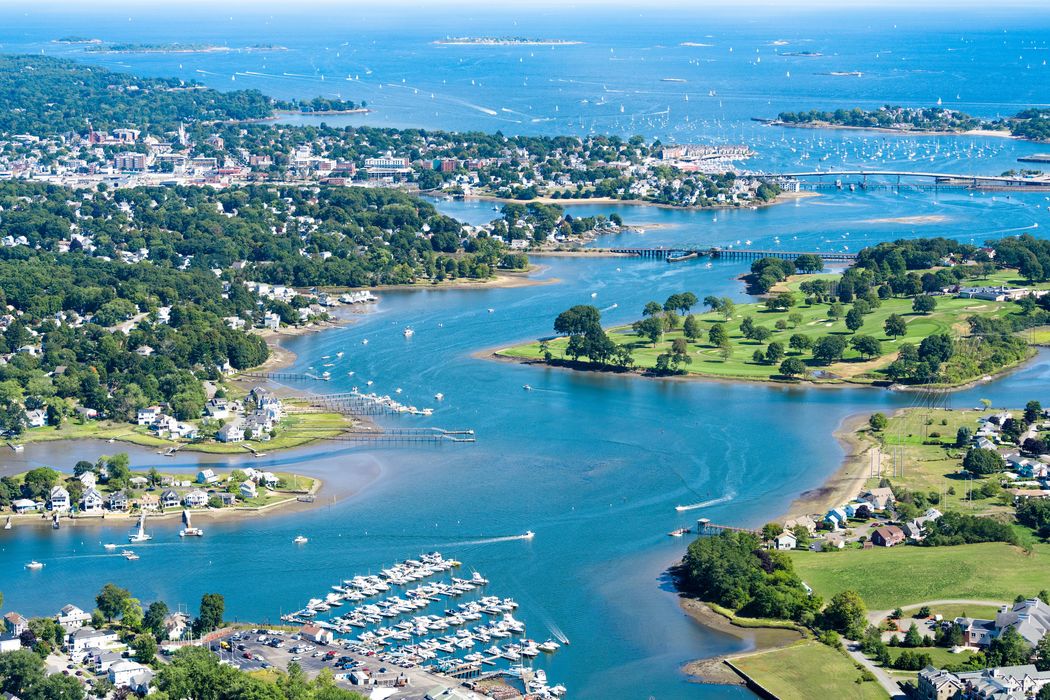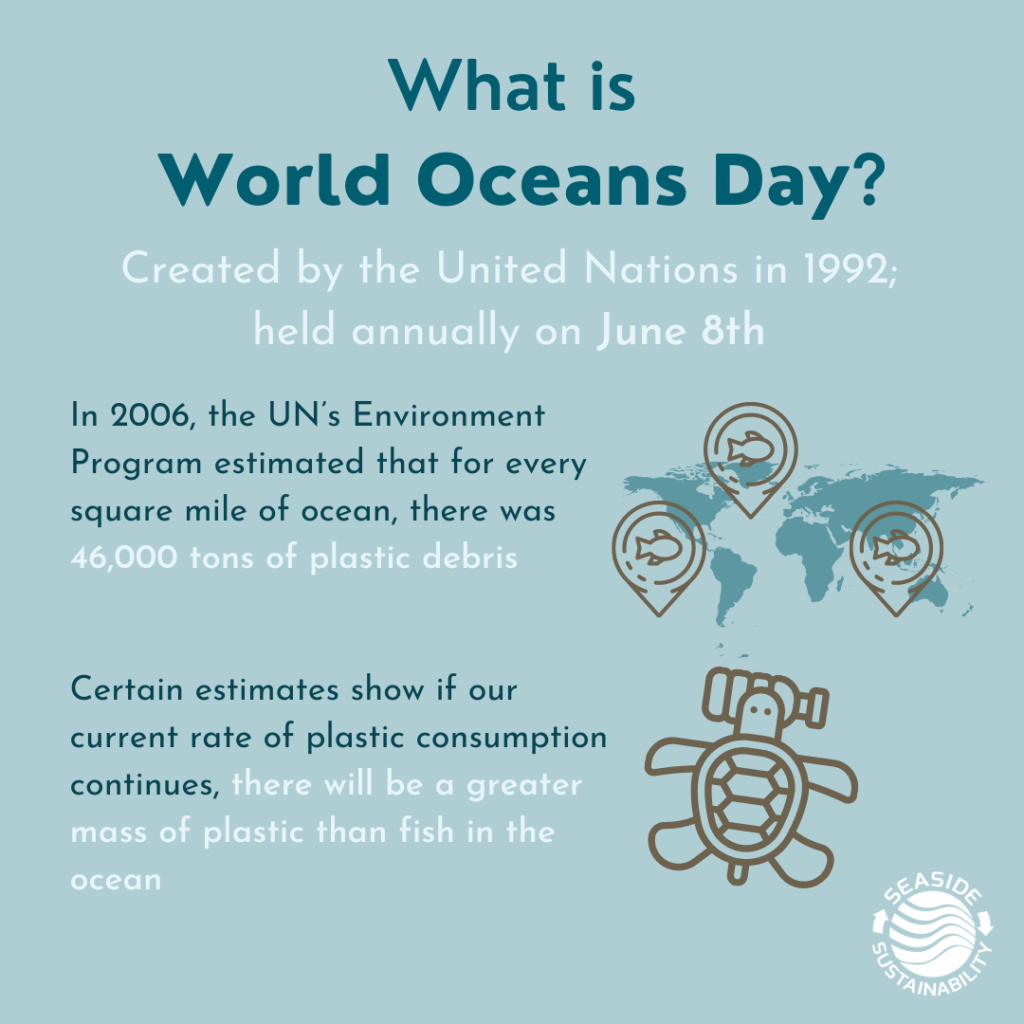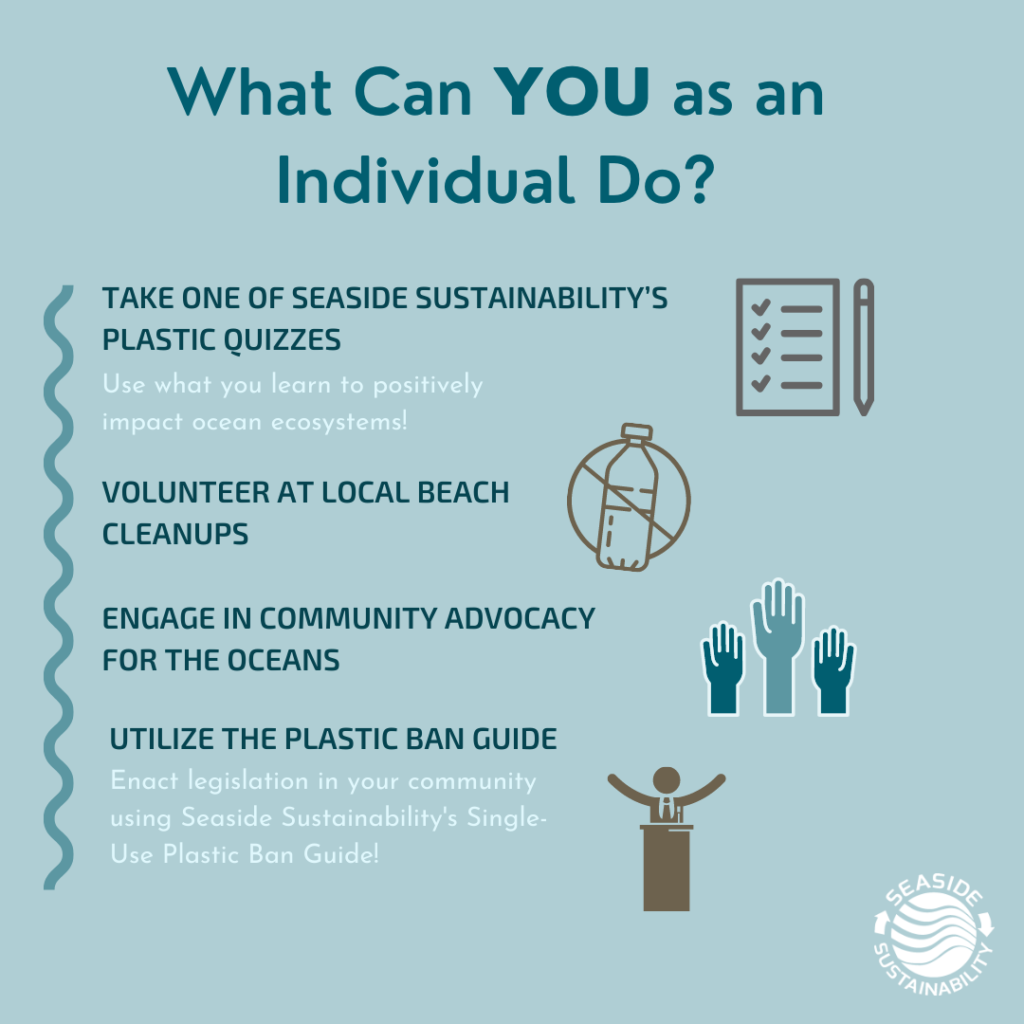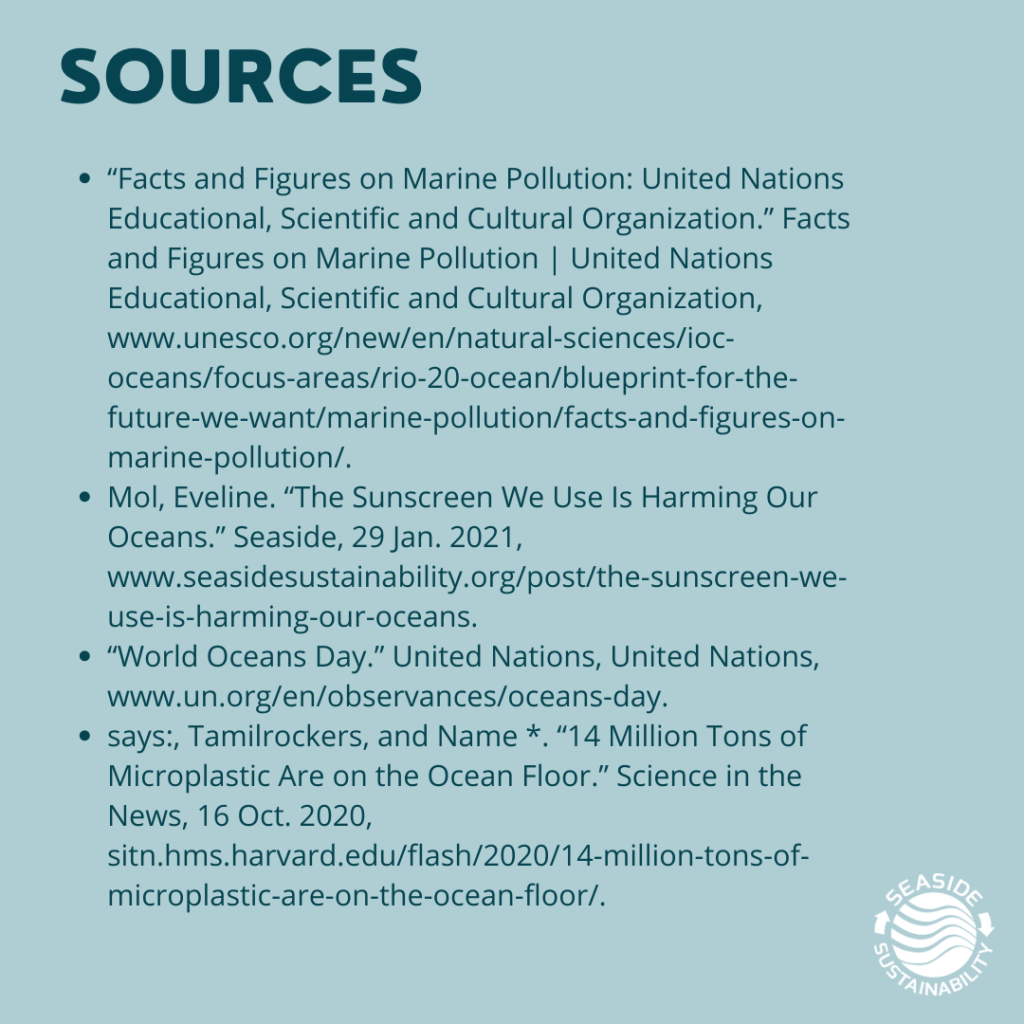Today, June 8, is World Oceans Day. Declared by the UN in 1992, the day raises awareness of the benefits we reap from our planet’s oceans and how we can properly care for them. If we use our ocean’s resources sustainably, the UN emphasizes, humans can benefit from our oceans for generations to come.
For Seaside Sustainability, a nonprofit organization based in Gloucester, every day is World Oceans Day. Founded in 2017, Seaside Sustainability aims to protect our coastal waters through education and action. Some of their top initiatives include facilitating the use of ocean cleaning technology like Seabins, and advocating for single-use plastic bans.
Why Should We Care About Our Oceans?
While trees often get the credit for being our planet’s oxygen powerhouses, oceans are actually responsible for producing over half of the planet’s oxygen. The ocean’s photosynthesizers like phytoplankton and kelp emit oxygen as they take in carbon dioxide.
The ocean is also responsible for most of the planet’s climate regulation, making many countries and continents inhabitable by humans that otherwise wouldn’t be. The ocean’s currents and weather patterns transport heat from equatorial climates to northern and southern ones.
Read: How Seaside Communities North of Boston Prepare for Climate Change
Over three quarters of all global trade travels via oceans or other marine transportation. And, of course, seafood—millions of metric tons of seafood are consumed by humans each year. Without healthy oceans, life as we know it on the planet would grind to a halt.
The Oceans and Microplastics
Seaside Sustainability is committed to helping individuals, businesses, and communities around the world take action to protect ocean health. This World Oceans Day, they’ve compiled some action items for folks to get involved with protecting our oceans. So, what can you do to help?
First, let’s take a look at why plastics are detrimental to our oceans. Millions of tons of plastic end up in oceans each year, causing harm to marine life via ingestion and suffocation. But the damage goes deeper than that. When plastics break down, they become invisible microplastics, which often make their way into humans through the seafood we eat and even the water we drink. While the effects of microplastics on humans haven’t yet been adequately researched, many chemicals used in plastic production are known to cause reproductive, neurological, and other disorders in humans. Additionally, the incineration and even recycling or composting of plastic all produce greenhouse gases.
Read: Trustees Work to Restore and Preserve the Ailing Great Marsh
Seaside Sustainability is a distributor of Seabins, which can help reduce microplastic accumulation wherever they’re placed. The trash skimmer, designed to be placed in marinas and ports, intercepts both macro and microplastics in the water. Learn more about how Seabins work here.
How You Can Get Involved
Discover the size of your plastic footprint with Seaside Sustainability’s Plastic Quizzes. You’ll find out your plastic waste from personal care produces, groceries, beverages, and household products. The quizzes will also provide you with tips to reduce your plastic footprint.
Check out Seaside Sustainability’s Single-Use Plastic Ban Guide, which offers guidelines for advocating for single-use plastic bans in your community. Seaside Sustainability has helped passed single-use plastic bans in Essex, Gloucester, and Rockport. Rockport’s legislation, which went into effect in January 2021, is one of the most comprehensive plastic bans in the country, banning all plastic cups, straws, stirrers, cutlery, film wrap, water bottles, and food containers.
Below, check out Seaside Sustainability’s series of infographics promoting 2021 World Oceans Day, and learn more about what you can do to protect our oceans today. Visit seasidesustainability.org to learn more about the organization’s educational offerings and how to get involved.





